Congratulations to the 2015-2016 SECOORA Executive Committee! We are honored to be working with this talented group of individuals. SECOORA Executive Committee plays an important role in sustaining our success. If you are interested in becoming a SECOORA member, please visit: https://secoora.org/about/governance/join
Conrad C. Lautenbacher Jr., Chairman
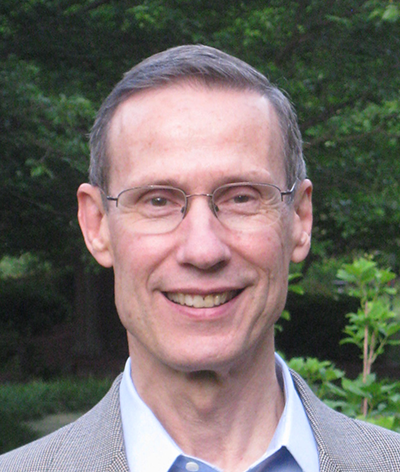 Conrad C. LautenbacherPh.D., Vice Admiral (USN Ret.) is CEO of GeoOptics, Inc., a startup company engaged in developing a constellation of Low Earth Orbit (LEO) Satellites for providing weather observational data as a service both to government and the private sector. Previously he was Vice President, Science Programs, at CSC Corporation. From 2001 to 2008, he served as the Administrator of the National Oceanic and Atmospheric Administration (NOAA). Prior to that, he headed the Consortium for Oceanographic Research and Education, now known as the Consortium for Ocean Leadership. During his 40 year Navy career, he served as the Commander of the U.S. Third Fleet at sea, and the Deputy Chief of Naval Operations (N-8) in charge of programs, budget and force structure, while ashore.
Conrad C. LautenbacherPh.D., Vice Admiral (USN Ret.) is CEO of GeoOptics, Inc., a startup company engaged in developing a constellation of Low Earth Orbit (LEO) Satellites for providing weather observational data as a service both to government and the private sector. Previously he was Vice President, Science Programs, at CSC Corporation. From 2001 to 2008, he served as the Administrator of the National Oceanic and Atmospheric Administration (NOAA). Prior to that, he headed the Consortium for Oceanographic Research and Education, now known as the Consortium for Ocean Leadership. During his 40 year Navy career, he served as the Commander of the U.S. Third Fleet at sea, and the Deputy Chief of Naval Operations (N-8) in charge of programs, budget and force structure, while ashore.
Bill Hogarth, Vice-Chairman
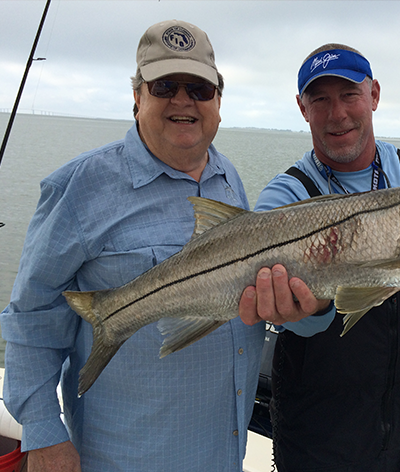 Dr. Hogarth is an accomplished marine research scientist with decades of experience in marine fisheries management. He currently serves as Director of the Florida Institute of Oceanography (FIO), a position he has held since January 2011. FIO is a consortium comprised of 30 various scientific and educational institutions from Florida that work collaboratively to maximize marine research and education resources. FIO is hosted by the University of South Florida and is located on the USFSP campus.
Dr. Hogarth is an accomplished marine research scientist with decades of experience in marine fisheries management. He currently serves as Director of the Florida Institute of Oceanography (FIO), a position he has held since January 2011. FIO is a consortium comprised of 30 various scientific and educational institutions from Florida that work collaboratively to maximize marine research and education resources. FIO is hosted by the University of South Florida and is located on the USFSP campus.
Dr. Hogarth was appointed to Regional Chancellor for USF-St. Petersburg from August 2012-June 2013. Prior to his leadership at FIO and USF-St. Petersburg, Dr. Hogarth was appointed as Dean of the USF’s College of Marine Science from January 2008-2011. Among his many distinguished appointments, Dr. Hogarth was appointed by Governor Crist to serve on the Gulf of Mexico Research Initiative Board (GoMRI), which oversees the funds of $500 million committed by BP over the next 10 years to investigate the impacts of the oil effects on the ecosystems of the Gulf of Mexico during the Deepwater Horizon disaster.
Before joining USF, Dr. Hogarth was the former Assistant Administrator of the National Marine Fisheries Services (NMFS) at the National Oceanic and Atmospheric Administration (NOAA), appointed by President George W. Bush in September 2001. During his appointment, he focused on management and enhancement for living marine resources and served as chairman of the International Whaling Commission and the International Commission for the Conservation of Atlantic Tunas. Prior to NOAA, Dr. Hogarth was the Director of the North Carolina Division of Marine Fisheries, a position he held from 1986 to 1994. He received his bachelor’s and master’s degrees from the University of Richmond in Virginia and a Ph.D. from North Carolina State University.
Jim Nelson, Secretary
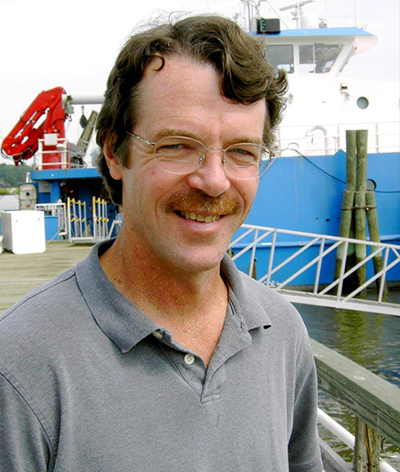 Jim Nelson has been with the Skidaway Institute of Oceanography since 1987, starting as a post-doctoral associate, joining the faculty in 1988 and recently retired, moving to Emeritus status in August, 2015. Much of his research has been conducted on the continental shelf and margin of the South Atlantic Bight, including work on phytoplankton and benthic microalgae production and community composition, distribution of bio-optical properties in relation to shelf hydrography and aspects of the physical-biological coupling on the shelf and upper slope. Nelson has been involved in regional coastal ocean observing programs since 1998, starting with a NOPP project to instrument Navy towers off Georgia, followed by the Southeast Atlantic Coastal Ocean Observing System (SEACOOS; 2002-2007) during which he was a member of the SEACOOS Executive Committee. He also served on the Advisory Board for the SE Center for Ocean Science Education Excellence (COSEE SE) and participated in a number of regional workshops that lead to the establishment of SECOORA.
Jim Nelson has been with the Skidaway Institute of Oceanography since 1987, starting as a post-doctoral associate, joining the faculty in 1988 and recently retired, moving to Emeritus status in August, 2015. Much of his research has been conducted on the continental shelf and margin of the South Atlantic Bight, including work on phytoplankton and benthic microalgae production and community composition, distribution of bio-optical properties in relation to shelf hydrography and aspects of the physical-biological coupling on the shelf and upper slope. Nelson has been involved in regional coastal ocean observing programs since 1998, starting with a NOPP project to instrument Navy towers off Georgia, followed by the Southeast Atlantic Coastal Ocean Observing System (SEACOOS; 2002-2007) during which he was a member of the SEACOOS Executive Committee. He also served on the Advisory Board for the SE Center for Ocean Science Education Excellence (COSEE SE) and participated in a number of regional workshops that lead to the establishment of SECOORA.
Peter Hamilton, Treasurer
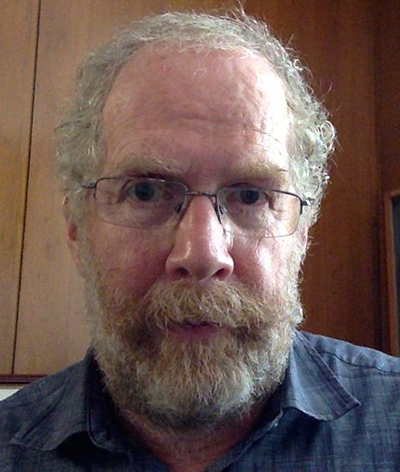 Dr. Hamilton is a senior scientist at the Raleigh, NC office of SAIC (now Leidos, Inc), a major company that uses scientific investigations to solve problems for government and private clients. During more that 35 years experience, Dr. Hamilton has been involved as a Principal Investigator in many oceanographic environmental studies ranging from estuaries (the Chesapeake Bay and the Columbia River) to the deep (> 2000 m) basins of the Gulf of Mexico. The Raleigh office has performed many multi-year environmental studies for the Minerals Management Service (MMS, now the Bureau of Ocean Energy Management (BOEM)) that are required for Oil and Gas leases. These studies typically require deployment of moorings with many different types of instrumentation, running ship-based surveys, analysis and management of data, and production of reports. Examples include the Mid-Atlantic Slope and Rise Program (MASAR), the South Atlantic Bight Physical Oceanography Study, the Frontal Eddy Dynamics Experiment (FRED) in the NC bays, the Straits of Florida Transport Study, and the North Carolina Physical Oceanographic Field Study off Cape Hatteras. In the Gulf of Mexico, programs include the Louisiana – Texas (LATEX) Circulation Study, the DeSoto Canyon Eddy Intrusion Study, deepwater studies in the northwest, central and eastern slope regions, a major field study of the Loop Current, and a Gulf-wide deep circulation study using Lagrangian (RAFOS) floats. For the latter two programs, Dr. Hamilton also filled the PM role. Some of these studies involved verification, in terms of physical processes, of numerical circulation model output using observational data analysis. Other work has involved monitoring sewage outfalls for the city of Honolulu (HI), and Los Angeles and Orange Counties (CA) using observations (some in near real time) and dispersion models. Site designation studies were performed for dumpsites in the New York Bight (106-mile site) and the near the Farallone Islands off central California, again using observations and models. These latter investigations were multi-institutional with participants from universities, private industry, and government agencies.
Dr. Hamilton is a senior scientist at the Raleigh, NC office of SAIC (now Leidos, Inc), a major company that uses scientific investigations to solve problems for government and private clients. During more that 35 years experience, Dr. Hamilton has been involved as a Principal Investigator in many oceanographic environmental studies ranging from estuaries (the Chesapeake Bay and the Columbia River) to the deep (> 2000 m) basins of the Gulf of Mexico. The Raleigh office has performed many multi-year environmental studies for the Minerals Management Service (MMS, now the Bureau of Ocean Energy Management (BOEM)) that are required for Oil and Gas leases. These studies typically require deployment of moorings with many different types of instrumentation, running ship-based surveys, analysis and management of data, and production of reports. Examples include the Mid-Atlantic Slope and Rise Program (MASAR), the South Atlantic Bight Physical Oceanography Study, the Frontal Eddy Dynamics Experiment (FRED) in the NC bays, the Straits of Florida Transport Study, and the North Carolina Physical Oceanographic Field Study off Cape Hatteras. In the Gulf of Mexico, programs include the Louisiana – Texas (LATEX) Circulation Study, the DeSoto Canyon Eddy Intrusion Study, deepwater studies in the northwest, central and eastern slope regions, a major field study of the Loop Current, and a Gulf-wide deep circulation study using Lagrangian (RAFOS) floats. For the latter two programs, Dr. Hamilton also filled the PM role. Some of these studies involved verification, in terms of physical processes, of numerical circulation model output using observational data analysis. Other work has involved monitoring sewage outfalls for the city of Honolulu (HI), and Los Angeles and Orange Counties (CA) using observations (some in near real time) and dispersion models. Site designation studies were performed for dumpsites in the New York Bight (106-mile site) and the near the Farallone Islands off central California, again using observations and models. These latter investigations were multi-institutional with participants from universities, private industry, and government agencies.
George Maul, Past Chair
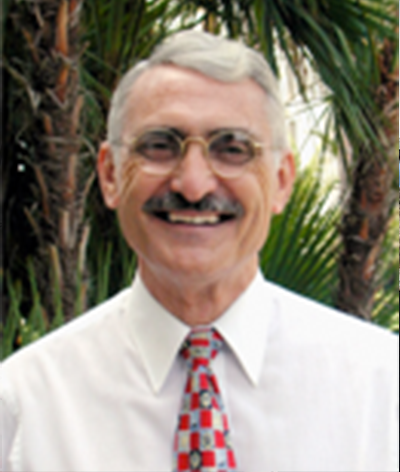 Dr. George A. Maul is Professor of Oceanography in the Department of Marine and Environmental Systems, at the Florida Institute of Technology. He earned a B.S. (with honors) in Marine Transportation from the State University of New York Maritime College at Fort Schuyler and was granted a U.S. Merchant Marine Officer's license. Dr. Maul was awarded a Ph.D. in Physical Oceanography from the University of Miami's Rosenstiel School of Marine and Atmospheric Science, where he later served as Adjunct Professor of Meteorology and Physical Oceanography.
Dr. George A. Maul is Professor of Oceanography in the Department of Marine and Environmental Systems, at the Florida Institute of Technology. He earned a B.S. (with honors) in Marine Transportation from the State University of New York Maritime College at Fort Schuyler and was granted a U.S. Merchant Marine Officer's license. Dr. Maul was awarded a Ph.D. in Physical Oceanography from the University of Miami's Rosenstiel School of Marine and Atmospheric Science, where he later served as Adjunct Professor of Meteorology and Physical Oceanography.
After college, he held ranks from Ensign through Lieutenant Commander in the commissioned officer corps of the U.S. Coast and Geodetic Survey, and then was a Supervisory Research Oceanographer with the NOAA Atlantic Oceanographic and Meteorological Laboratory in Miami. Dr. Maul has been Chief Scientist on major oceanographic cruises, and has published numerous refereed articles, book chapters, editorials, technical reports, abstracts, and books on oceanography and meteorology. He is a Fellow of the Marine Technology Society, and a Fellow of the American Meteorological Society, and is a member of the American Geophysical Union, Omicron Delta Kappa (National Leadership Honor Society), Sigma Xi (Scientific Research Society), Phi Kappa Phi Honor Society, and the Florida Academy of Sciences.
Prof. Maul was elected to two terms as Vice Chairman of the Subcommission for the Caribbean and Adjacent Regions of the Intergovernmental Oceanographic Commission of UNESCO, and is founding Chairman of the IOCARIBE Tsunami Steering Group of Experts. He chaired the United Nations Environment Programme / Intergovernmental Oceanographic Commission Joint Task Team on Climatic Changes in the Wider Caribbean Region, and is on the editorial board of Marine Geodesy. The Florida Tech Student Government named him College of Engineering Teacher of the Year; he has received the Faculty Senate Excellence Award for university teaching, and the Faculty Senate Excellence Award for service.
Related news
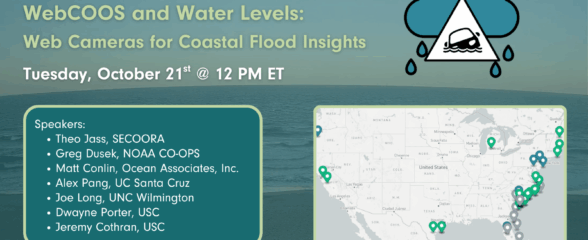
SECOORA Webinar | WebCOOS and Water Levels: Web Cameras for Coastal Flood Insights
On October 21st at 12 PM ET, SECOORA is hosting a webinar with investigators from the Webcam Coastal Observation System (WebCOOS) project team and the WebCOOS Project Manager. Web cameras are a low-cost technology that can be used to document flooding impacts to coastal communities. Register here.

SECOORA Funding Opportunity Announcement: Letters of Intent Solicitation
SECOORA will submit a coordinated regional proposal in response to the anticipated FY 2026 Implementation of the U.S. Integrated Ocean Observing System (IOOS) funding opportunity. Letters of Intent to be considered for inclusion in SECOORA’s full proposal are due September 9, 2025.

SECOORA Hosts the First Surface Elevation Table (SET) Community of Practice Virtual Workshop
The SECOORA SET Workshop was virtual on July 17, 2025. More than 50 Community of Practice members and stakeholders joined this collaborative workshop to discuss SET monitoring, coastal resilience, and data-driven decision making in the Southeast.